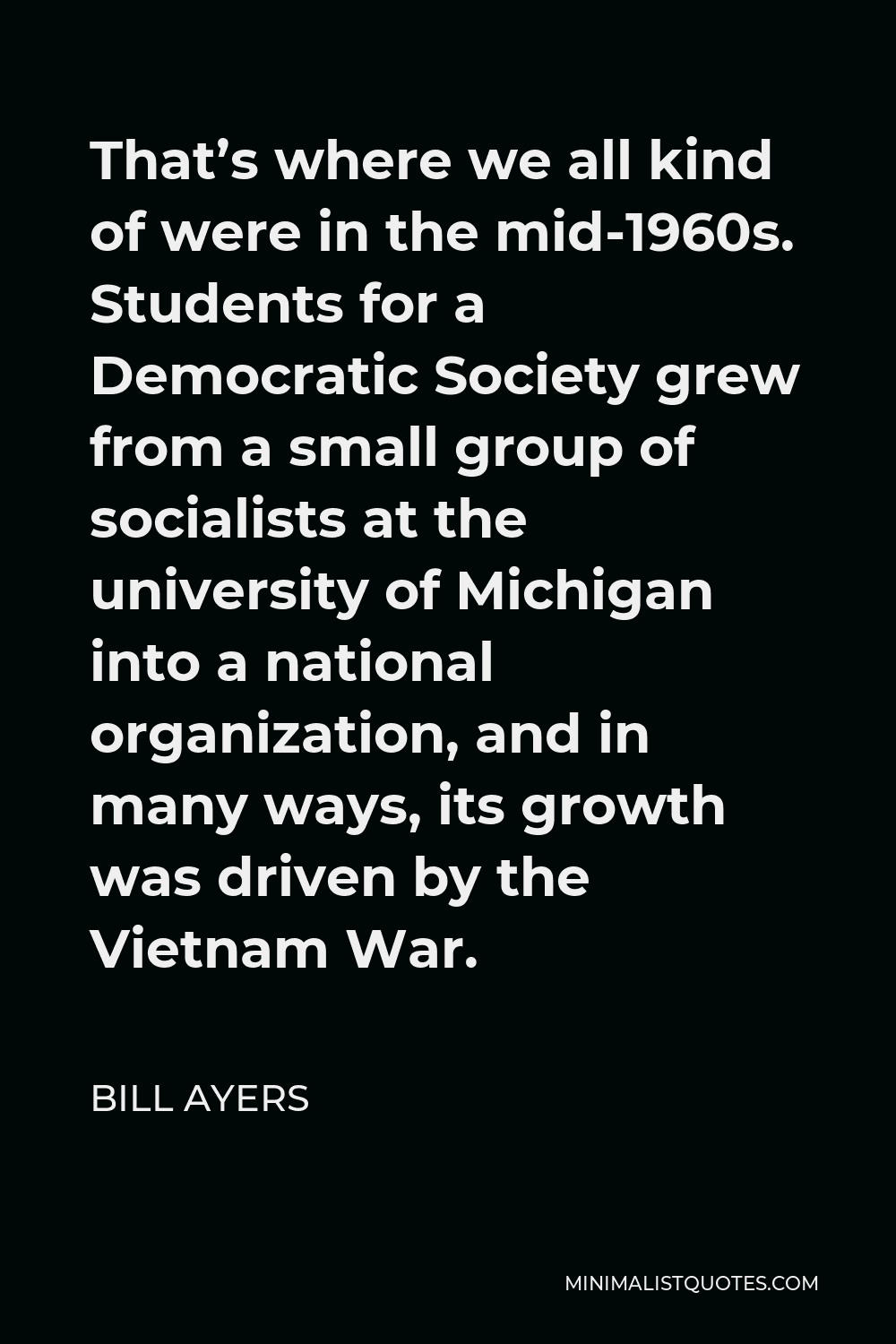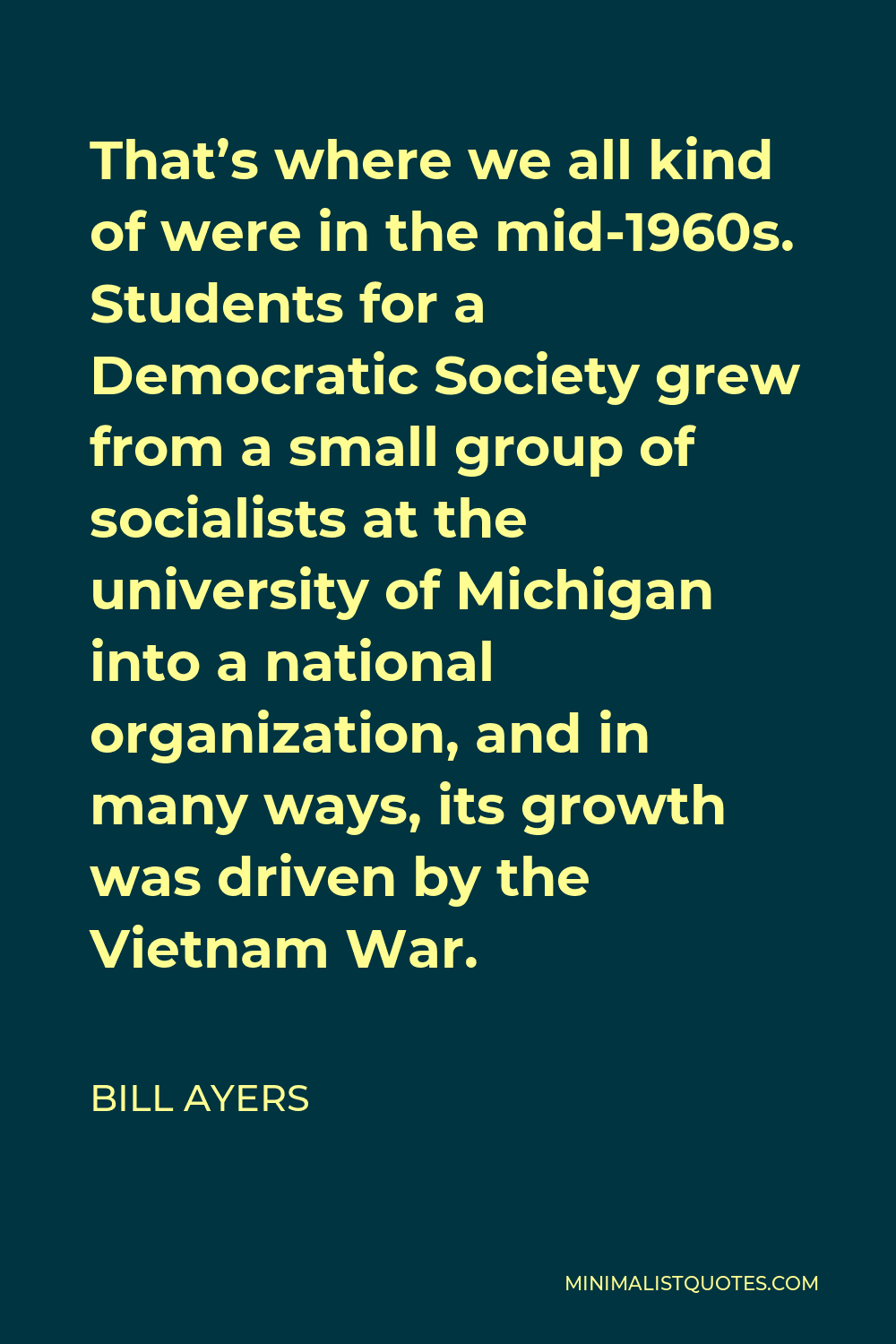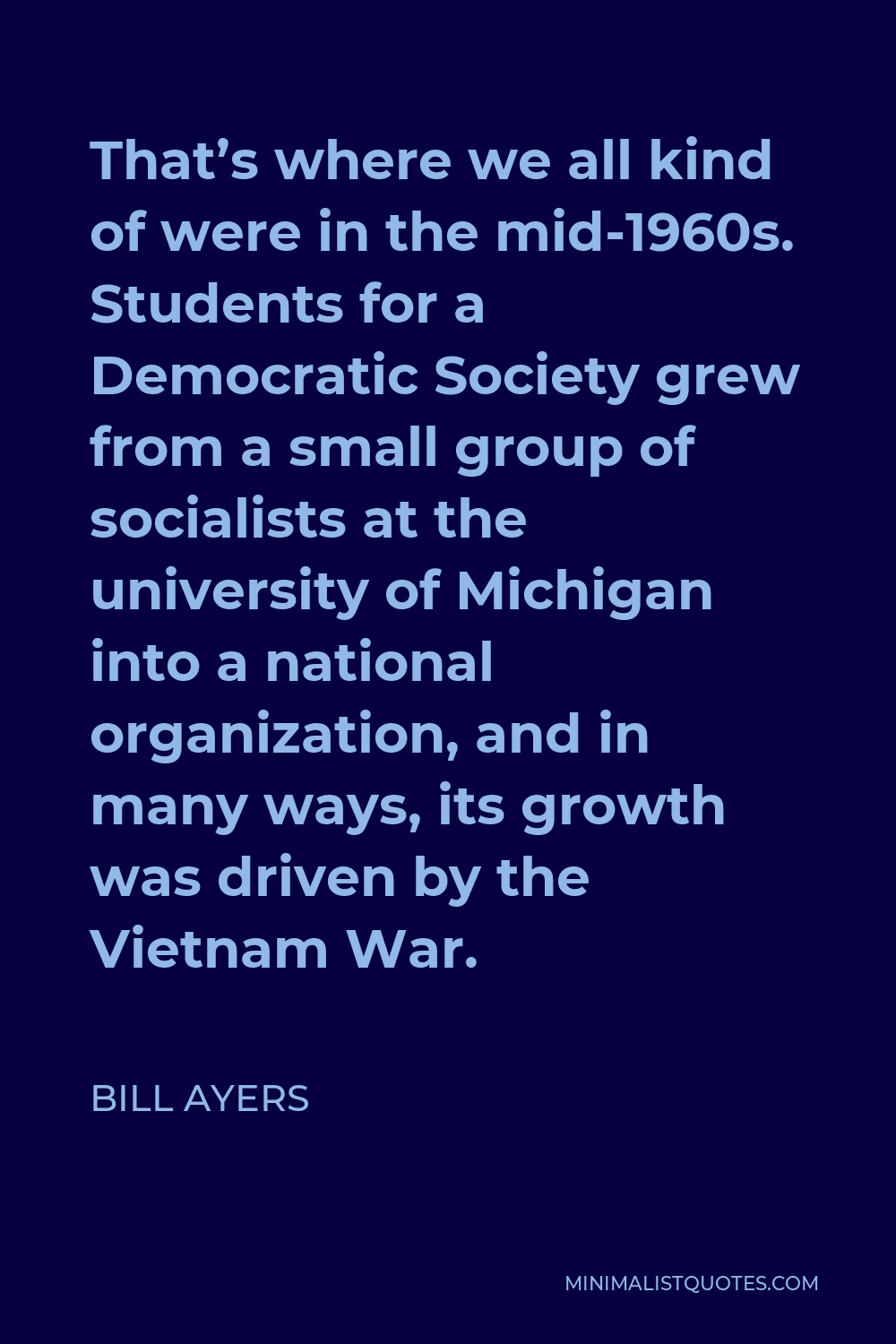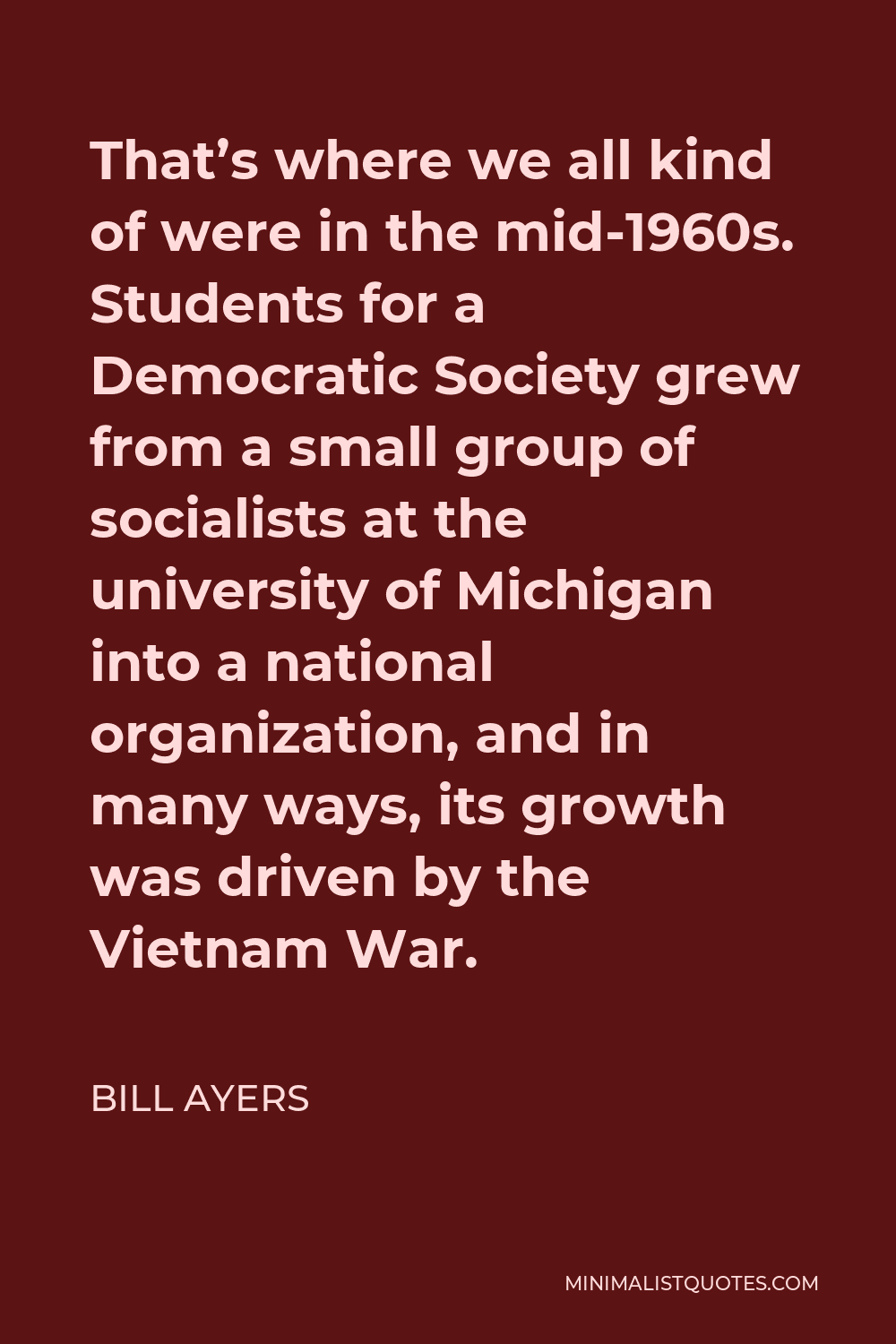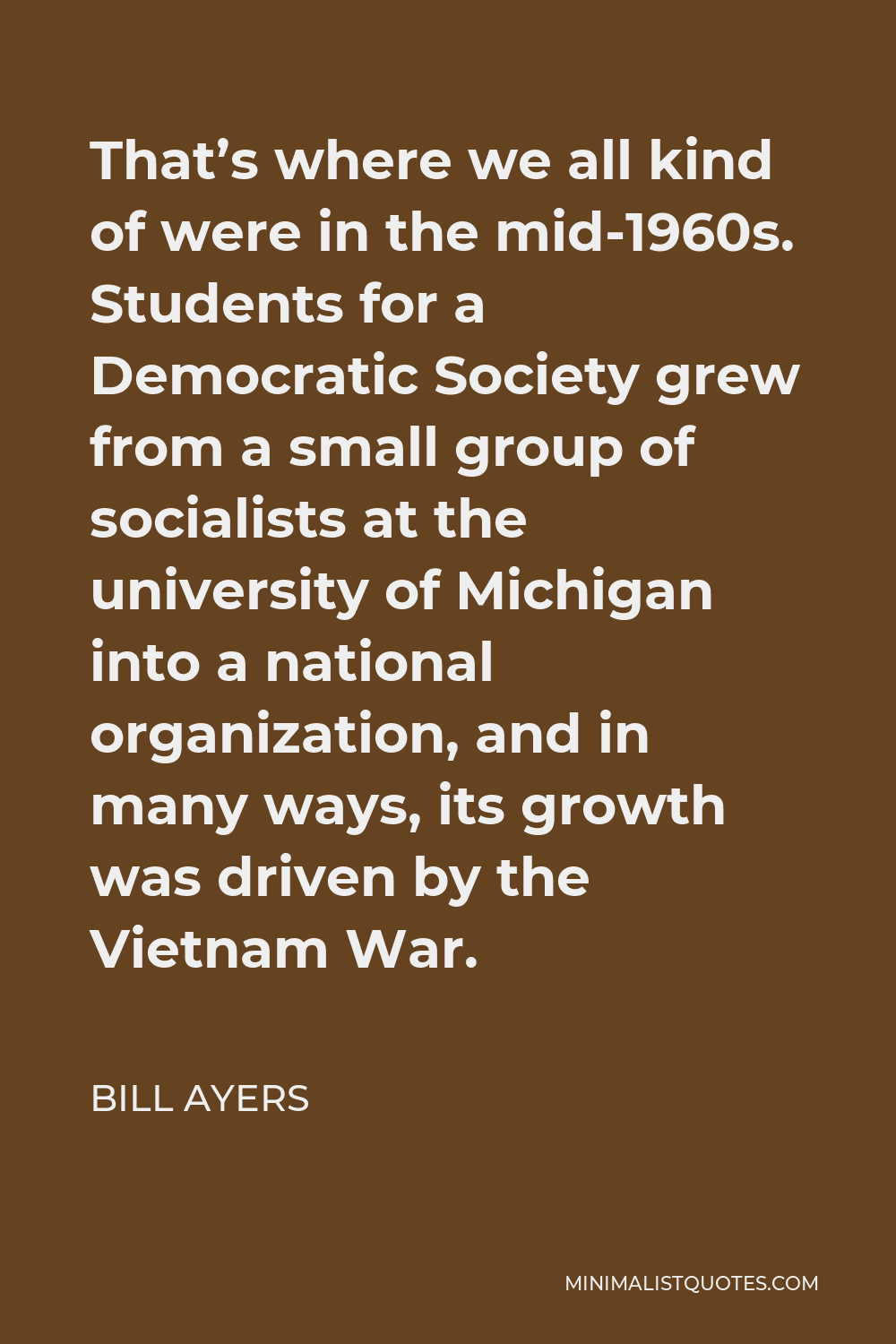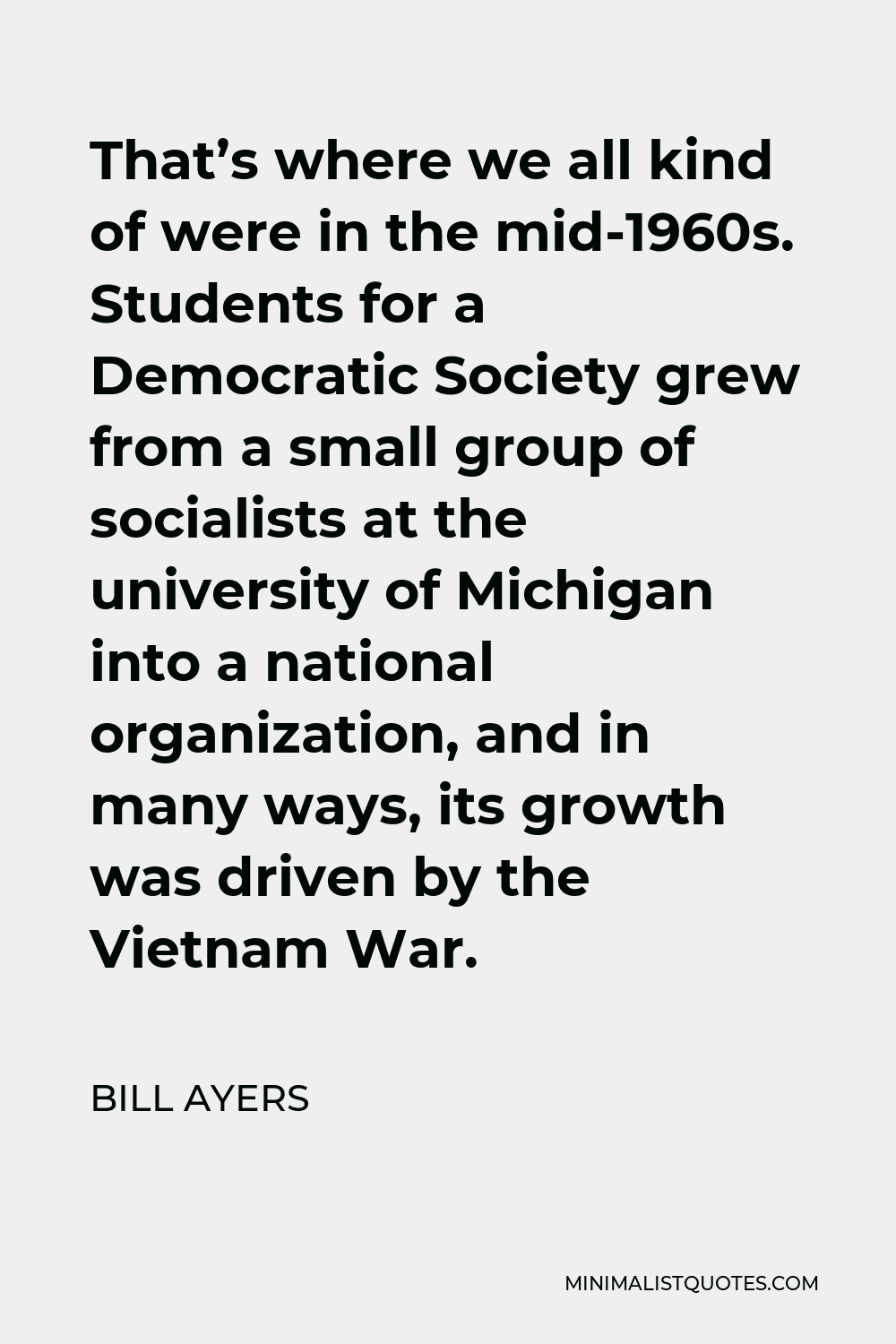Frederick Douglass ran a primary campaign against [Abraham Lincoln] the second time around, in 1864. They hated him. Why’d they hate him? Because he said things like “I believe in white supremacy.”
BILL AYERSThat’s where we all kind of were in the mid-1960s. Students for a Democratic Society grew from a small group of socialists at the university of Michigan into a national organization, and in many ways, its growth was driven by the Vietnam War.
More Bill Ayers Quotes
-





![Bill Ayers Quote - Frederick Douglass ran a primary campaign against [Abraham Lincoln] the second time around, in 1864. They hated him. Why’d they hate him? Because he said things like “I believe in white supremacy.”](https://minimalistquotes.com/images/frederick-douglass-ran-a-primary-campaign-against-.jpg)
-





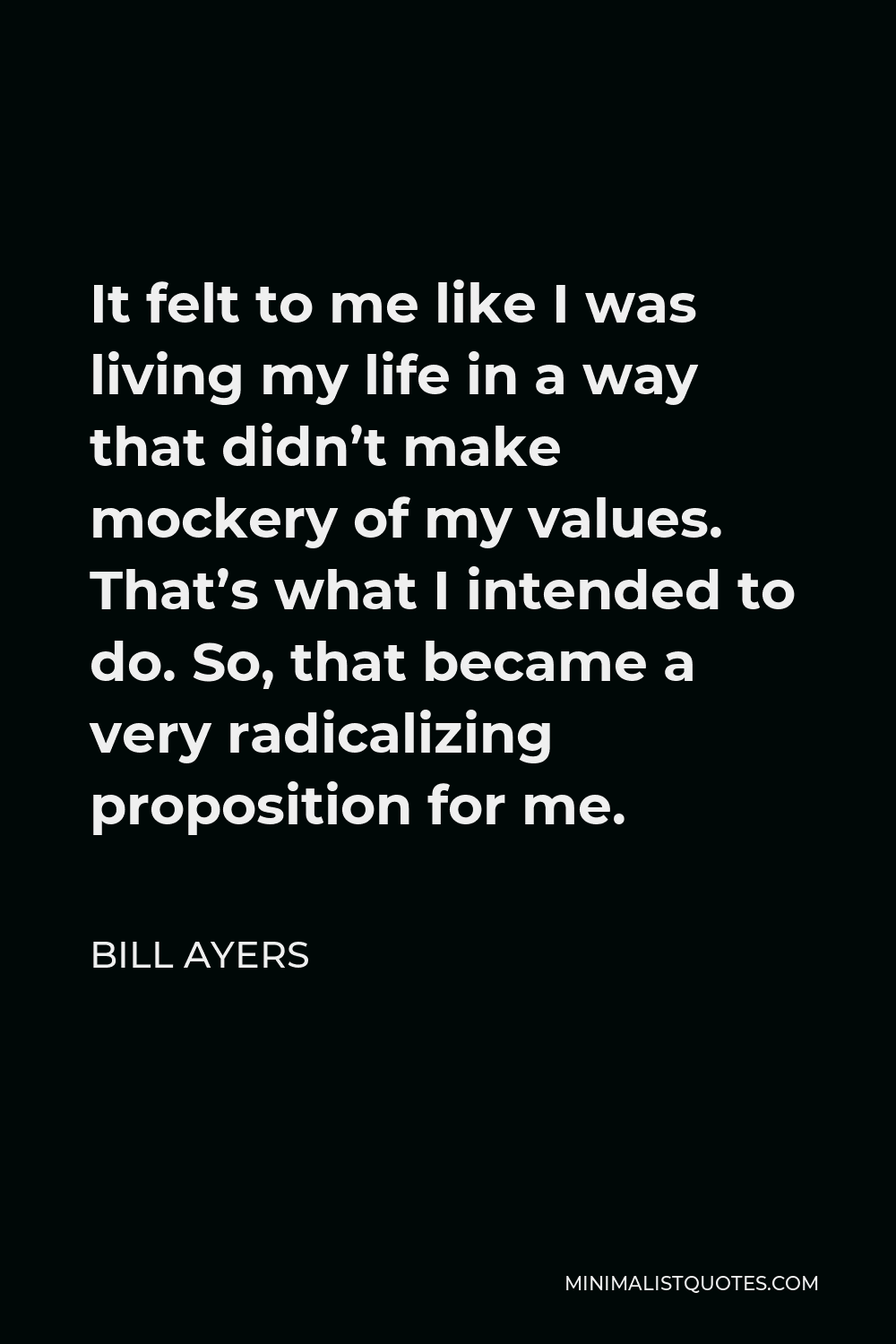
It felt to me like I was living my life in a way that didn’t make mockery of my values. That’s what I intended to do. So, that became a very radicalizing proposition for me.
BILL AYERS -






I suffer from a genetic flaw, which is that my mother was a hopeless Pollyanna.
BILL AYERS -






Everything was absolutely ideal on the day I bombed the Pentagon.
BILL AYERS -





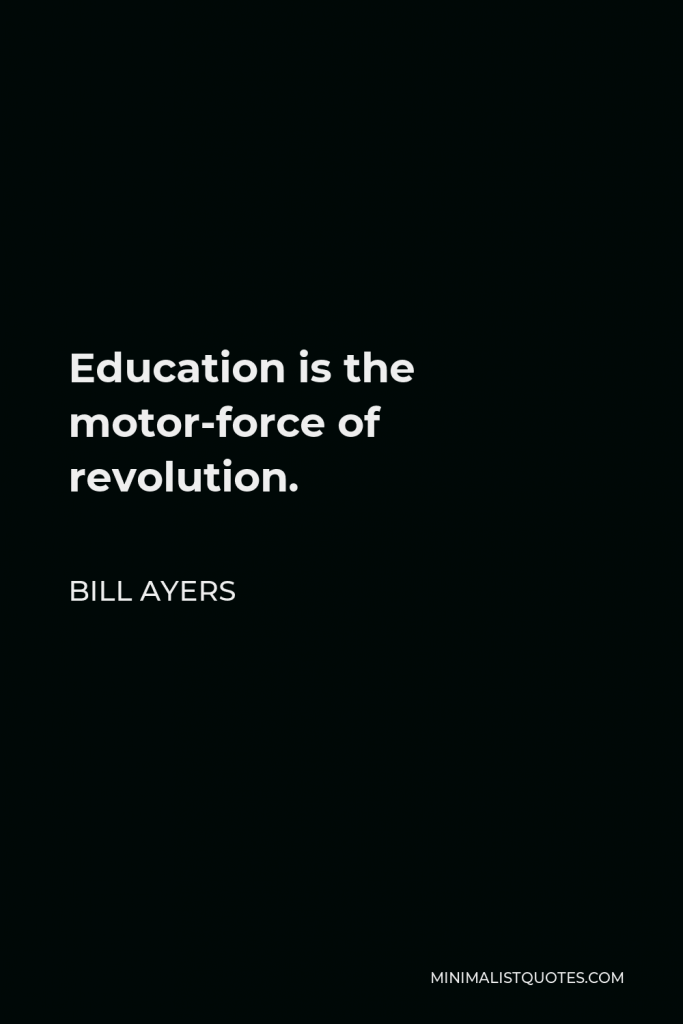

Education is the motor-force of revolution.
BILL AYERS -





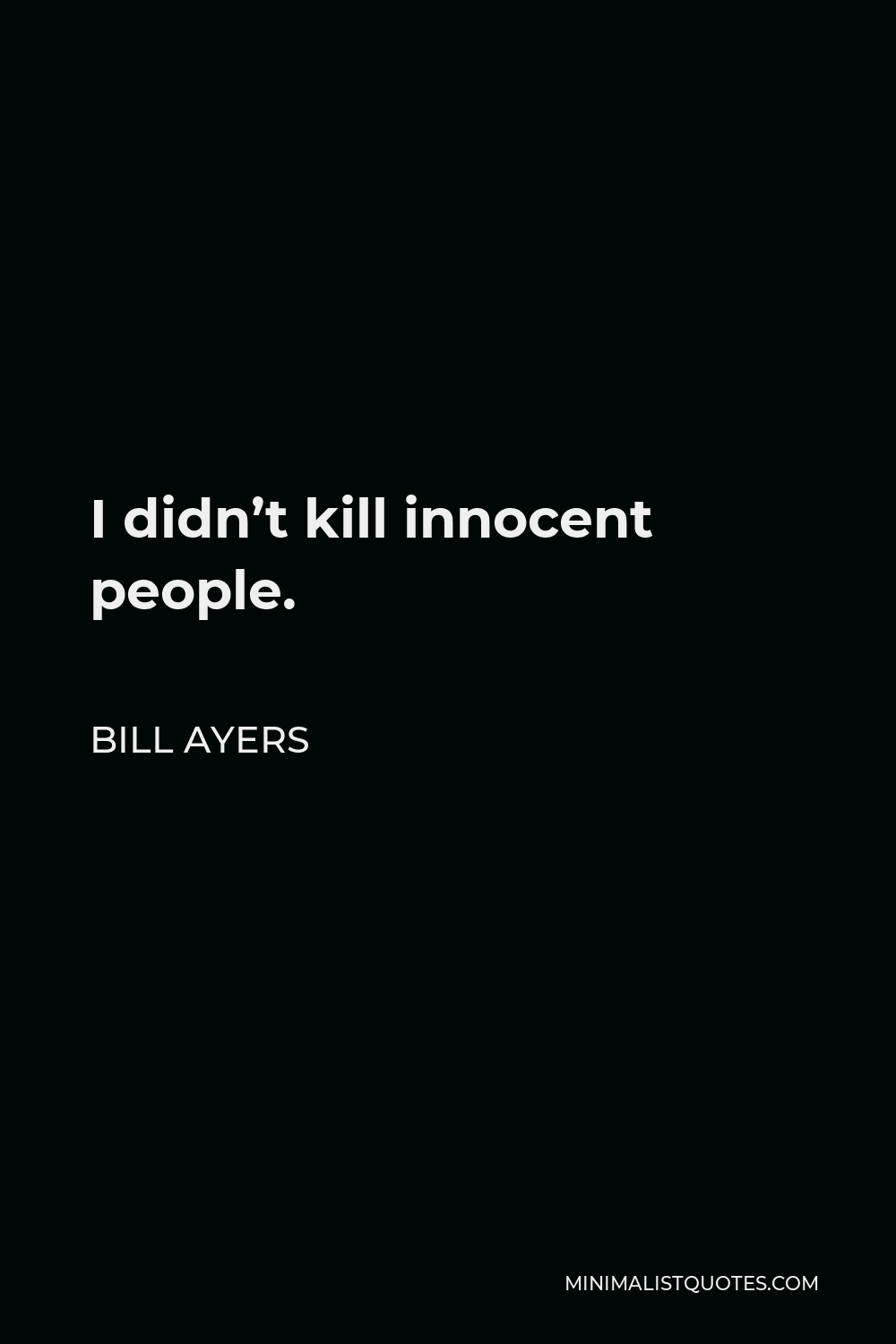
I didn’t kill innocent people.
BILL AYERS -







Terrorists destroy randomly.
BILL AYERS -





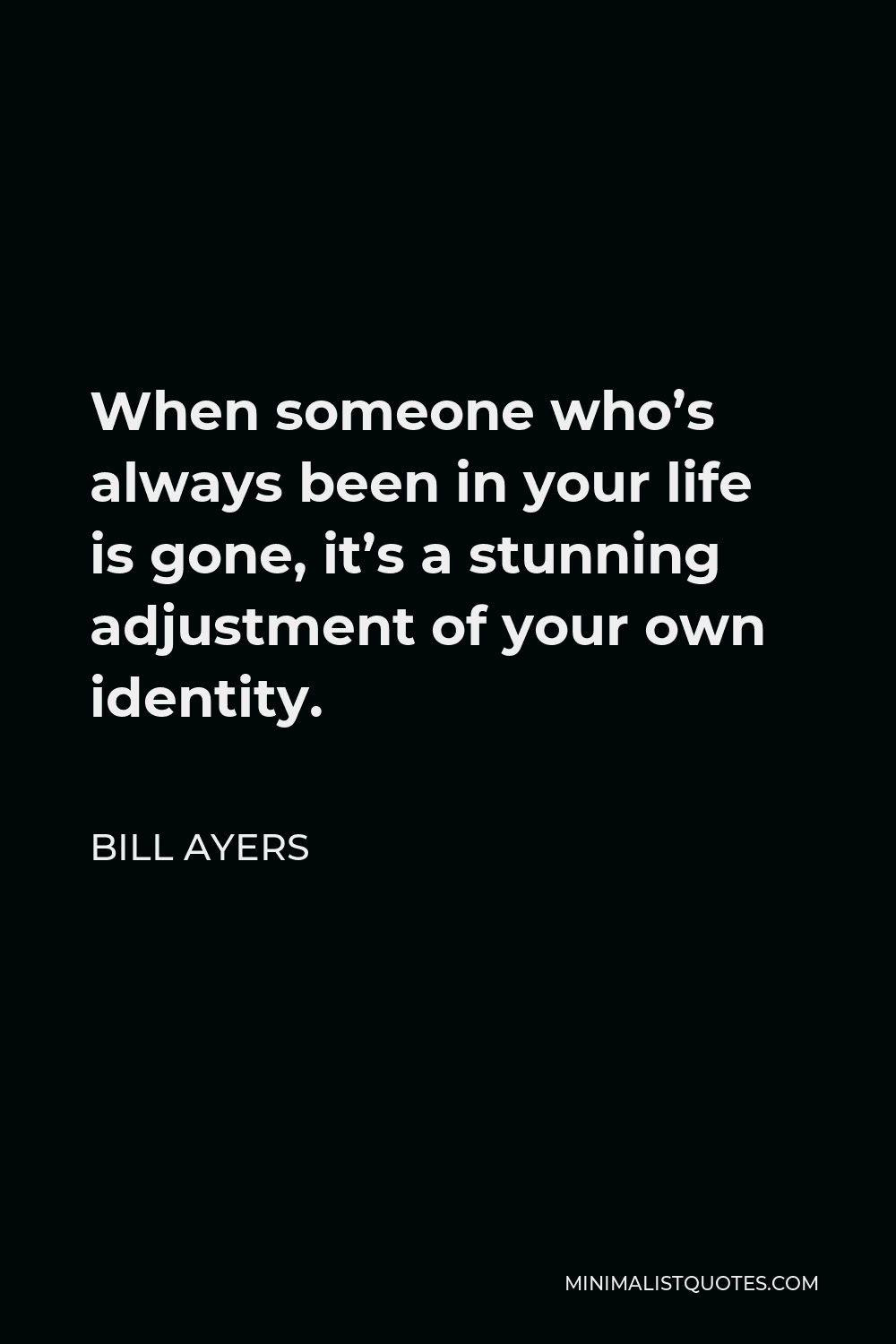
When someone who’s always been in your life is gone, it’s a stunning adjustment of your own identity.
BILL AYERS -





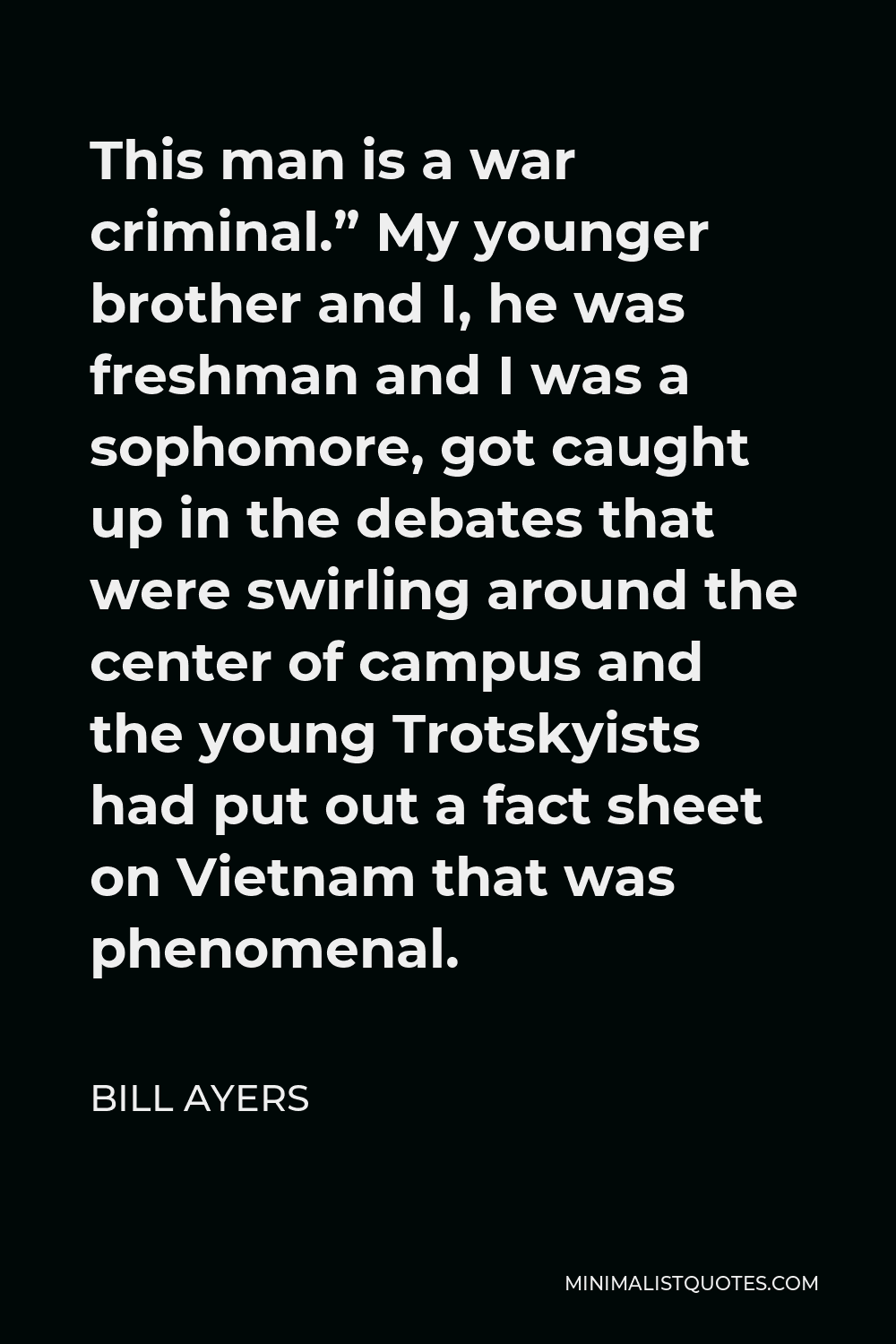
This man is a war criminal.” My younger brother and I, he was freshman and I was a sophomore, got caught up in the debates that were swirling around the center of campus and the young Trotskyists had put out a fact sheet on Vietnam that was phenomenal.
BILL AYERS -





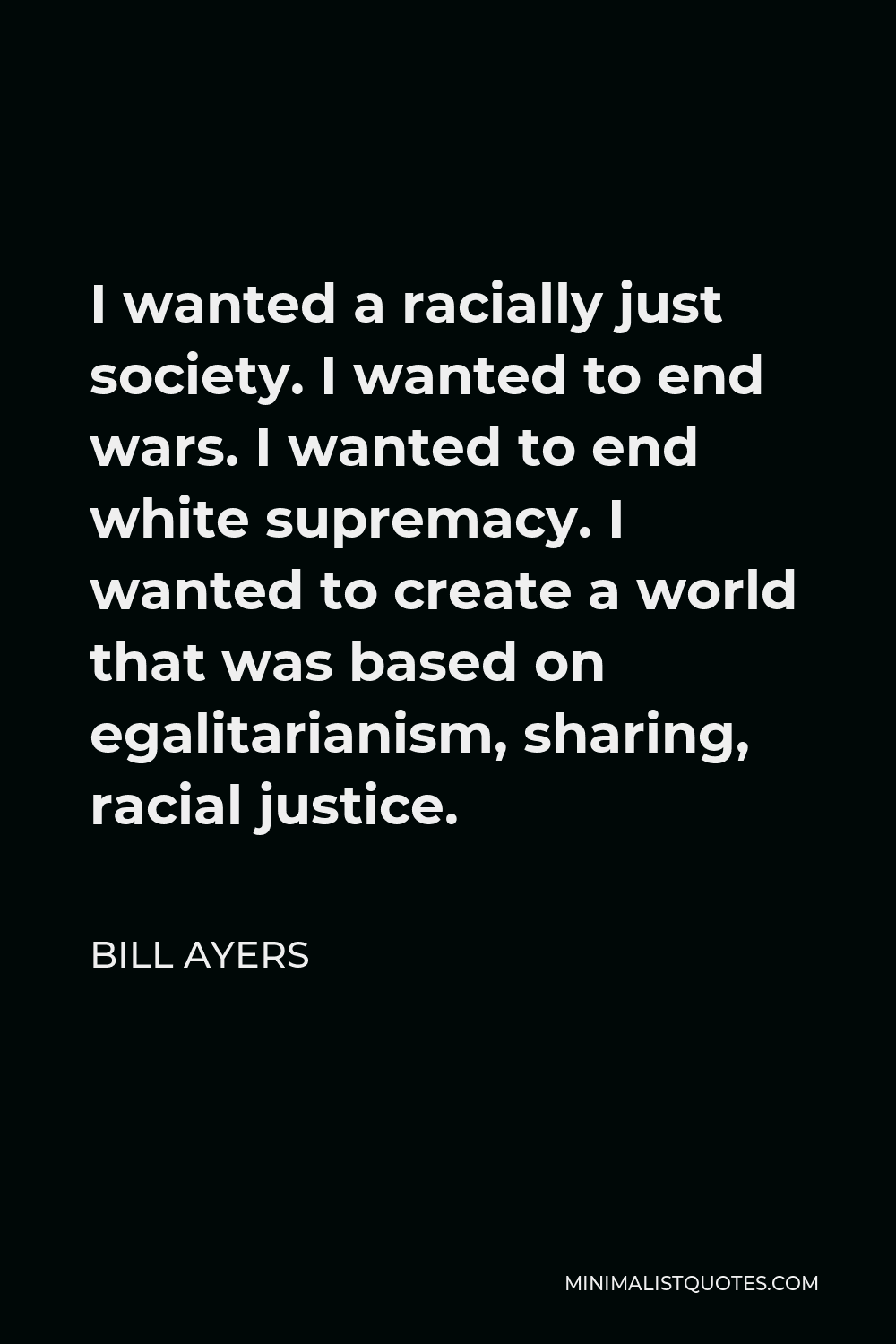
I wanted a racially just society. I wanted to end wars. I wanted to end white supremacy. I wanted to create a world that was based on egalitarianism, sharing, racial justice.
BILL AYERS -





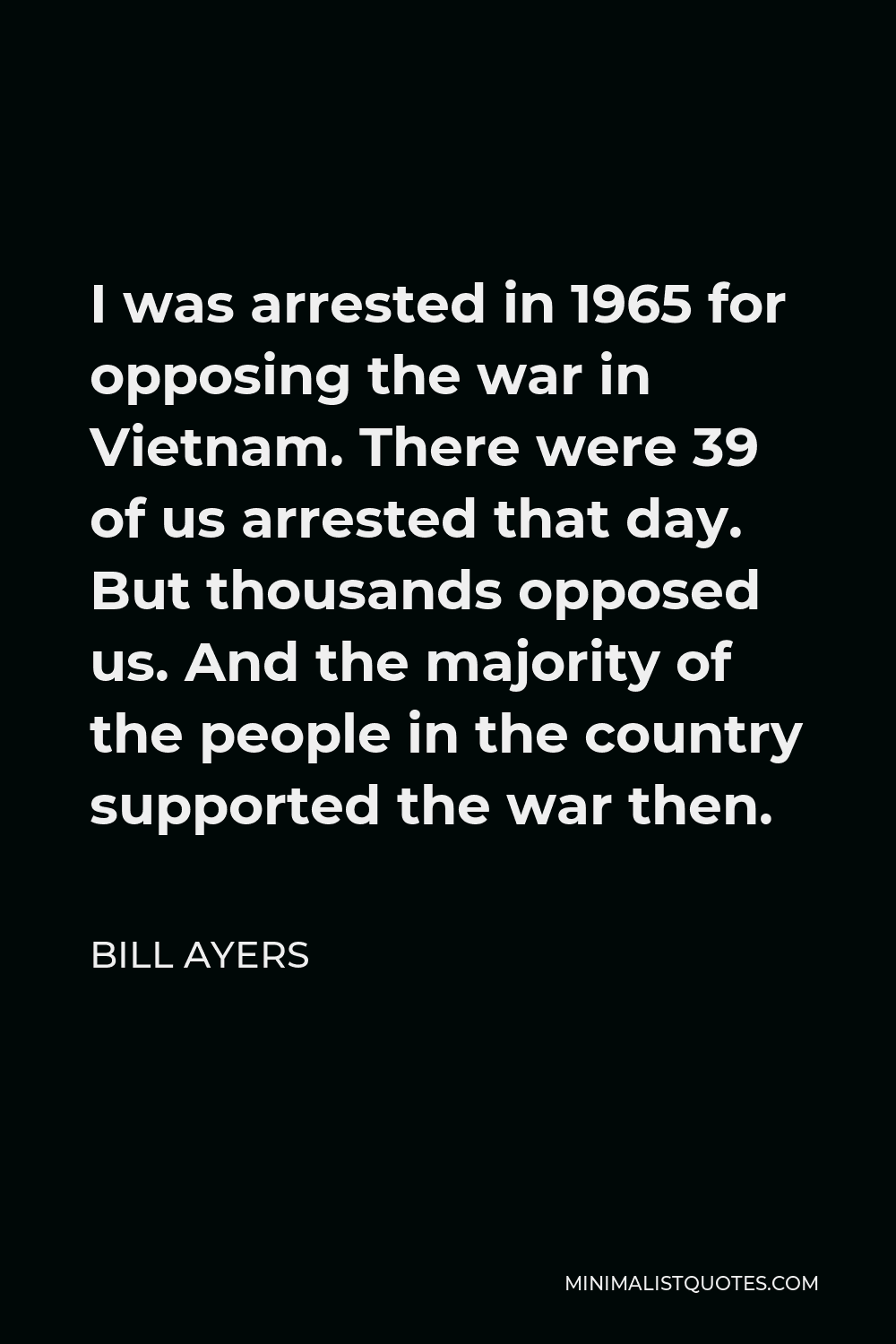
I was arrested in 1965 for opposing the war in Vietnam. There were 39 of us arrested that day. But thousands opposed us. And the majority of the people in the country supported the war then.
BILL AYERS -





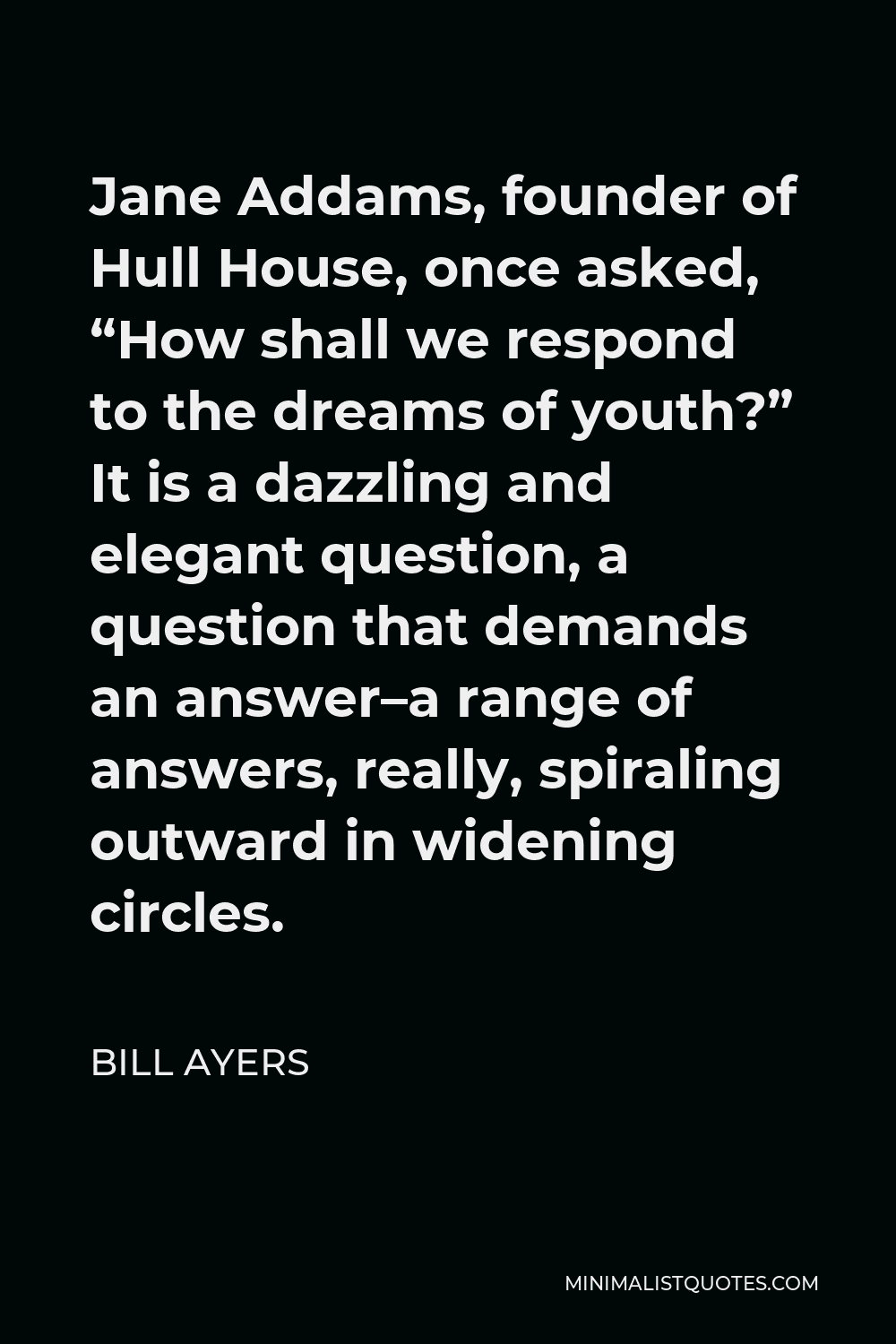
Jane Addams, founder of Hull House, once asked, “How shall we respond to the dreams of youth?” It is a dazzling and elegant question, a question that demands an answer–a range of answers, really, spiraling outward in widening circles.
BILL AYERS -





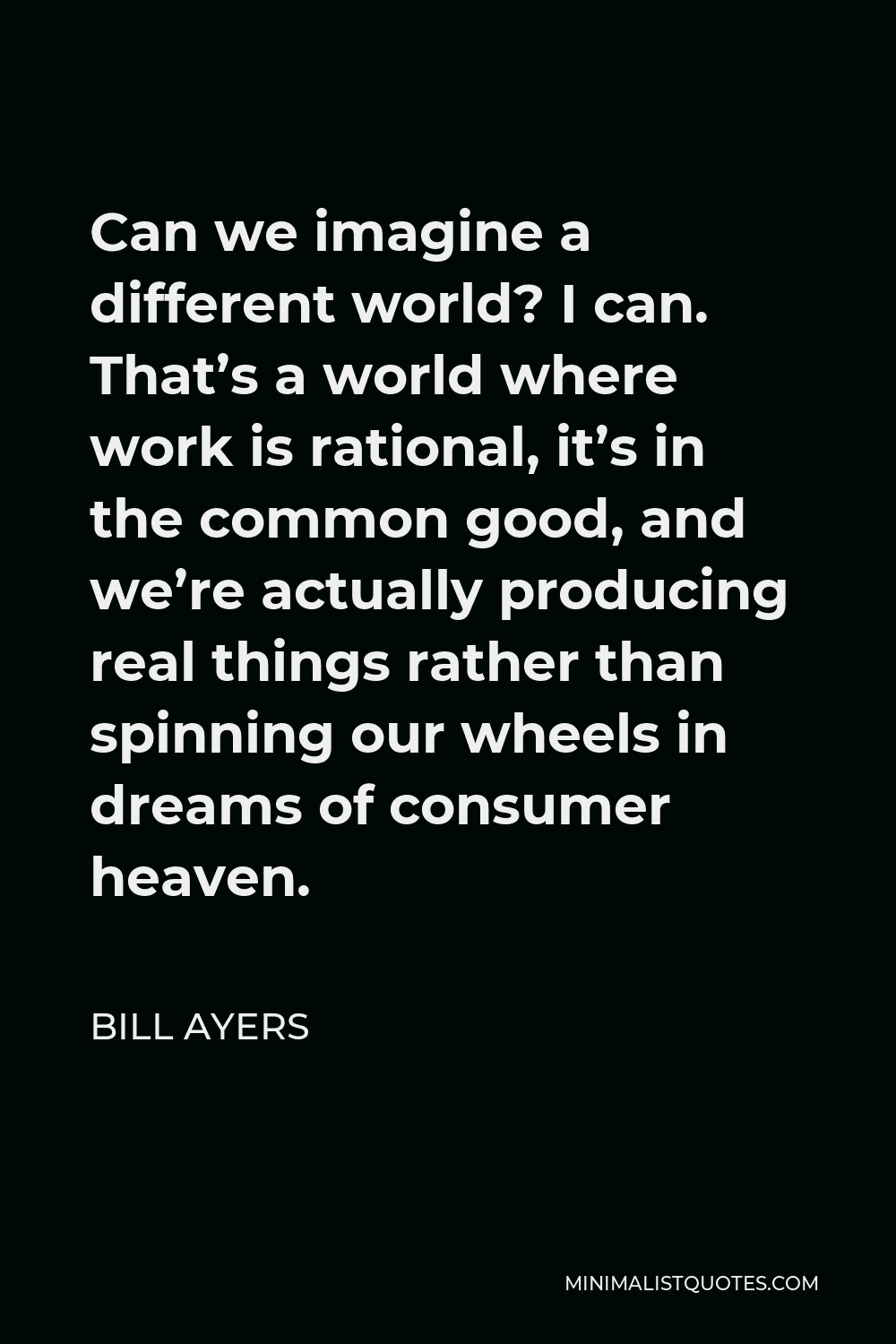
Can we imagine a different world? I can. That’s a world where work is rational, it’s in the common good, and we’re actually producing real things rather than spinning our wheels in dreams of consumer heaven.
BILL AYERS -





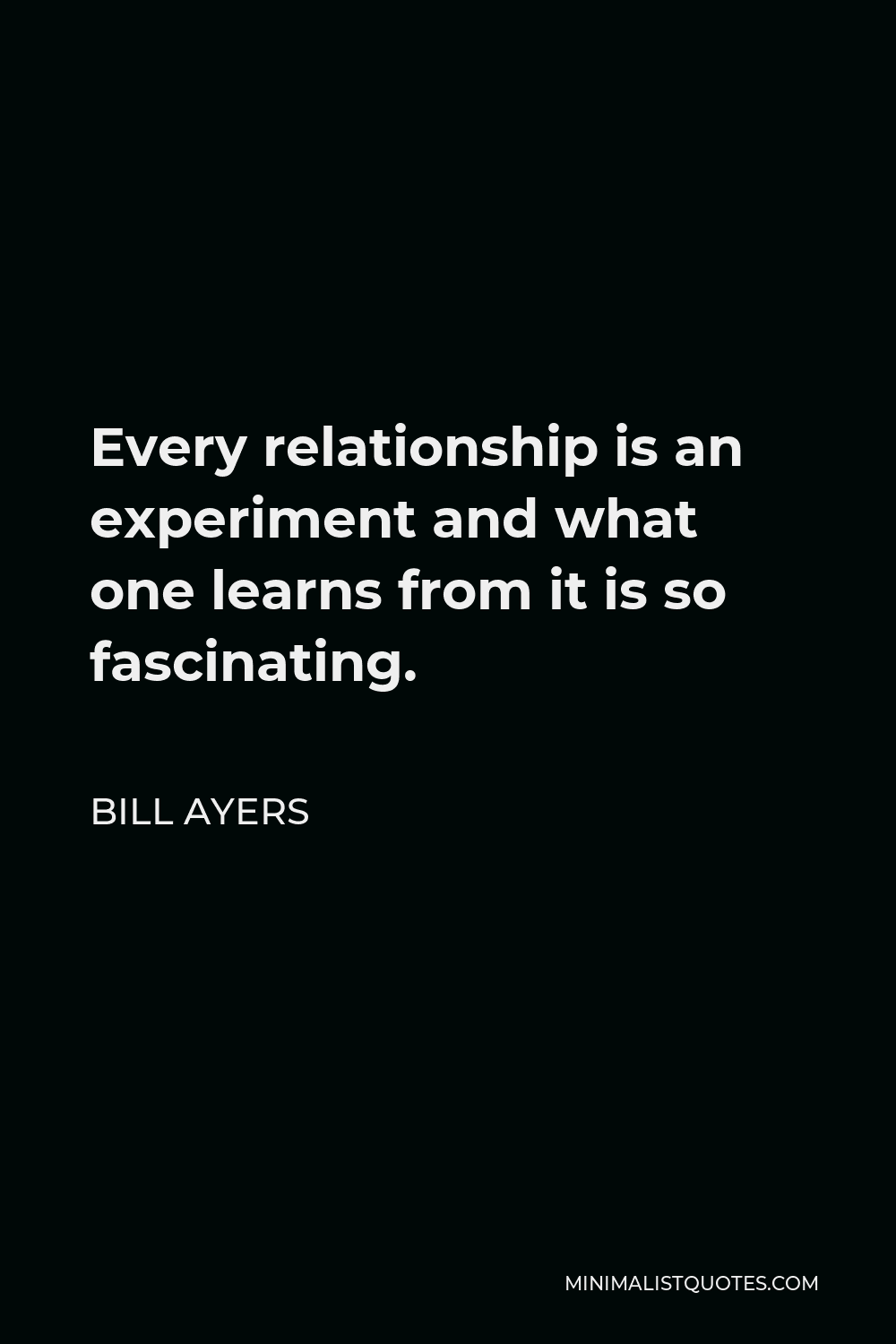
Every relationship is an experiment and what one learns from it is so fascinating.
BILL AYERS -





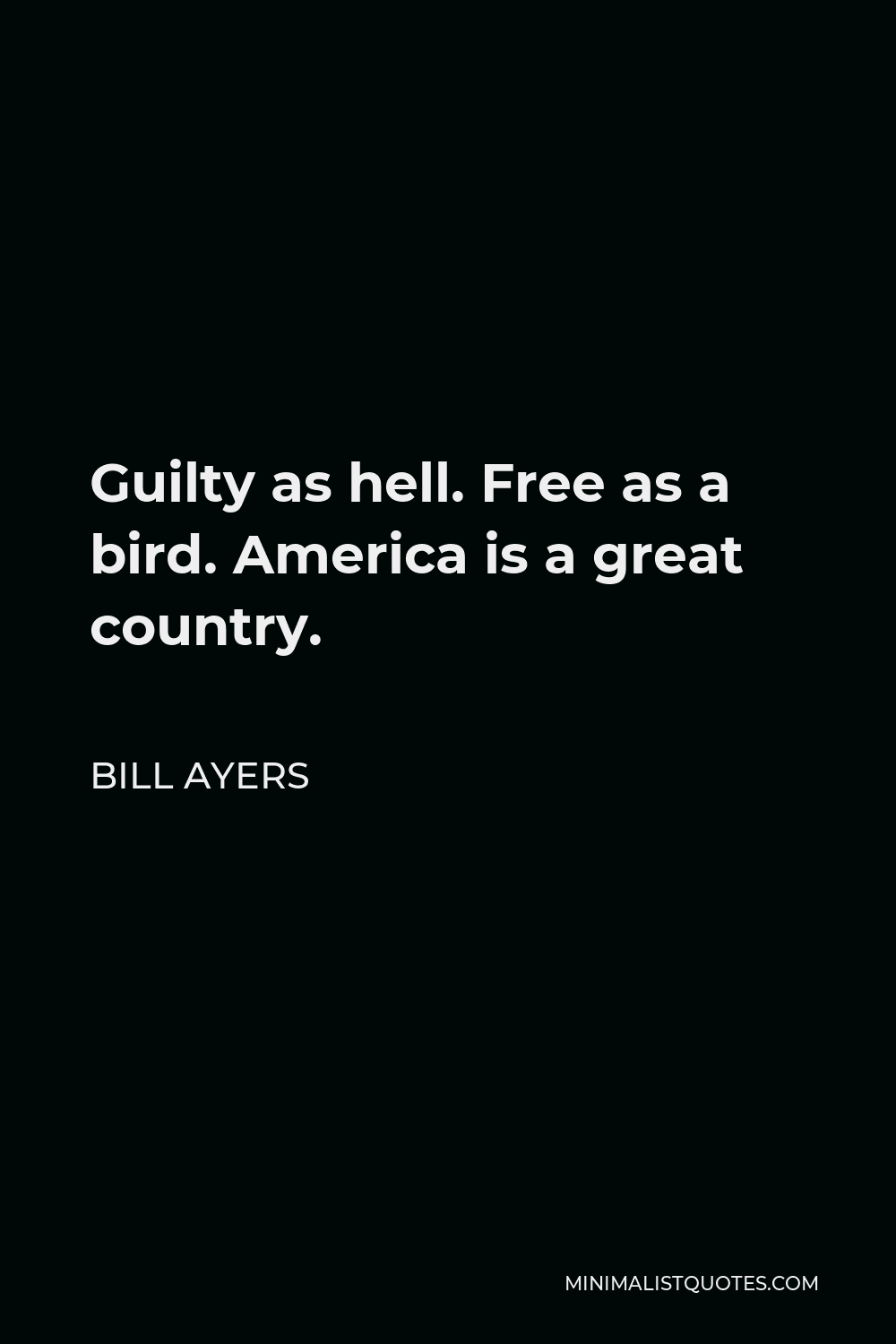
Guilty as hell. Free as a bird. America is a great country.
BILL AYERS -





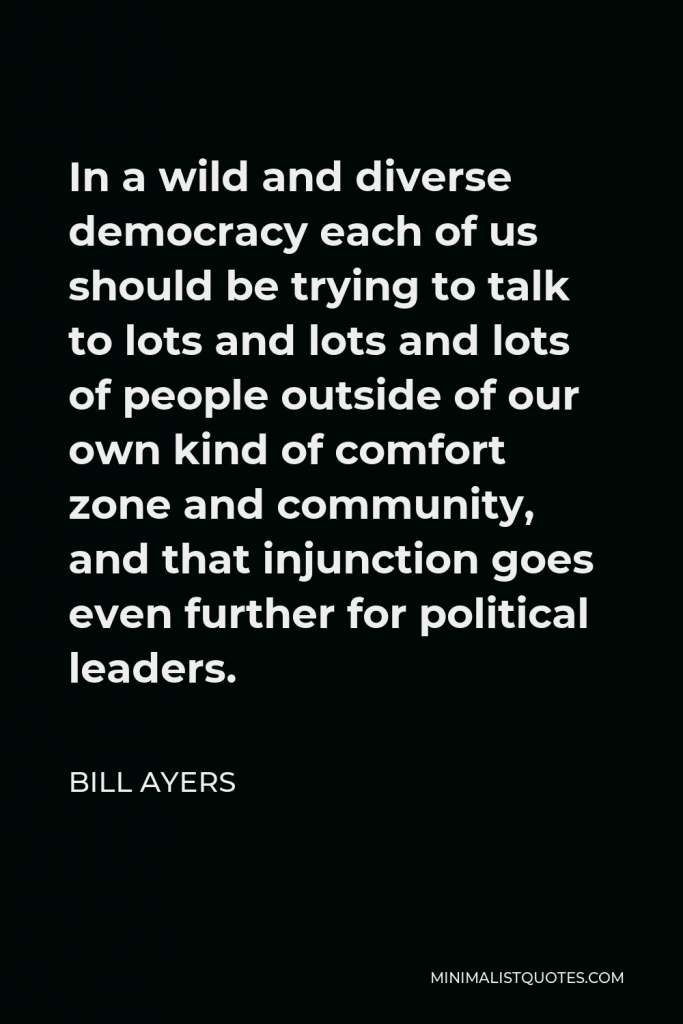

In a wild and diverse democracy each of us should be trying to talk to lots and lots and lots of people outside of our own kind of comfort zone and community, and that injunction goes even further for political leaders.
BILL AYERS
